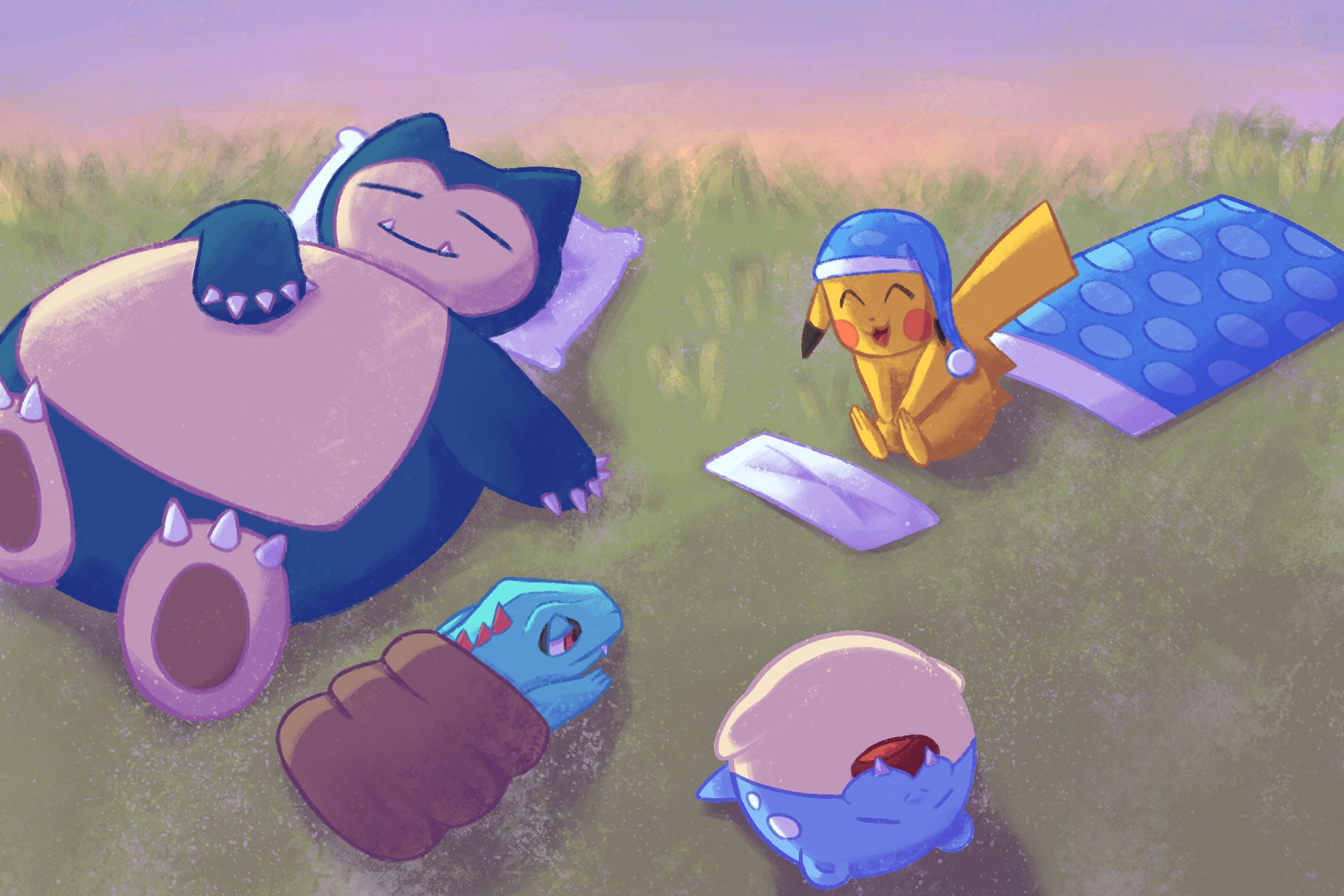This July saw the release of “Pokémon Sleep” in America, an app that tracks the user’s sleeping patterns and encourages them to get healthier sleep through “gamifying” the process. It’s a tried-and-true technique somewhat similar to “Pokémon GO,” which achieved mass success back in 2016 and created an army of phone-holding wanderers in every neighborhood, enticing people to spend more time outside. Researchers have concluded that Pokémon GO was actually beneficial to the users’ health, decreasing sedentary behavior and vastly increasing their number of steps per day.
“Pokémon Sleep” seeks to achieve a similar effect, this time targeting the poor sleeping habits of many young people. High school or college students’ sleeping schedules are often irregular, inconsistent and sparse. A mix of school schedules that go against their students’ circadian rhythms and newly introduced social pressures in adolescence often lead young people to develop these unhealthy behaviors.
And bad sleep can have a number of negative side effects, including fatigue, difficulty with focus and concentration and it even creates a higher chance of experiencing dangerous health problems like heart disease and strokes. Of course, most people know that getting a good amount of sleep is generally healthy, and being sleep-deprived is unhealthy. But knowledge of that fact isn’t always enough to incentivize consistent healthy choices, especially when other pressures enter the mix.
Nintendo seeks to offer a solution to that problem in the form of “gamifying” sleep. The term “gamify” just refers to applying elements intrinsic to many games, such as scorekeeping and competition, to parts of life that wouldn’t normally have them. In this case, Nintendo has made use of their Pokémon property to add elements of the iconic franchise to the process of creating and maintaining a sleep schedule.
Pokémon is a cultural touchstone.Its involvement in anything is bound to garner interest just on its own. Making it free ( with the option to make in-app purchases, of course) and available in mobile stores makes it accessible to a wide range of audiences.
Mechanically, the game has users track their sleep for observation and analysis, both through inputting the time you go to sleep and wake up, as well as through recording the level of noise you make throughout the night. The quality of your sleep is determined by the amount of time spent asleep and level of noise you emit, less noise indicating sounder sleep. The combination of these factors gives you a daily score that boosts your ability to find new Pokémon. During the day, Pokémon you have befriended assist you in getting a better score by finding items to strengthen your Snorlax. It’s a simple game that doesn’t require much from its players besides occasionally checking in on your Pokémon and taking a few steps to set it up before bed.
That, and allowing the Pokémon company to record your sleeping sounds.
This is a strange level of privacy to give away to a corporation, and many are not comfortable with doing so. For what it’s worth, the company has promised the data they collect will be deleted or only used anonymously to analyze the sleep patterns of their general user base. If that’s still too troubling, you can turn off the recording feature and simply use it to track the time you spend asleep.
Through these points of data, the game can accomplish a good deal in terms of keeping you committed to a sleeping schedule and informing you on your own habits. It tracks patterns in your sleep that can tell you how often you enter deep sleep, how the amount of rest you get varies across the week, and it gives advice on how to change unhealthy behavior.
On top of that, use of the game might draw attention to one major behavior that can easily disrupt your sleep— “doom-scrolling.” “Doom-scrolling” is staying awake on your phone after getting into bed, going down a social media pipeline that keeps you awake for hours longer than intended. Once you start recording your sleep through the app, leaving it to do other things on your phone will disrupt the recording process, incentivizing you to avoid using your device after getting in bed.
It helps that the game rewards you for maintaining healthy behaviors. It can be difficult to observe the real-world benefits of getting good sleep, since it more often amounts to a lack of negative effects versus positive. But getting a good score or befriending a new Pokémon are observable, quantifiable achievements that provide some sense of immediate gratification for healthy choices. The gameplay loop is rather repetitive, but the variety of Pokémon in the game available to find can keep the experiencing exciting.
On that note, the game is purposefully designed to be low stress, without a real failure condition or a sense of urgency. This makes sense given that it is supposed to be played most often right before sleep and shouldn’t keep you awake. But this might expose an issue in the game’s mechanics, in that there are plenty of rewards for good sleep, but the only repercussion for bad sleep is the absence of those rewards come morning. Once you realize that failing to get eight hours one night doesn’t cost much in the long run and there aren’t downsides to cutting corners, the game’s attempts to motivate you might be less effective.
The gamification process is far from perfect for that reason, among others. It lacks the ability to have real repercussions, and even if it could have that, we probably wouldn’t want it to. There are plenty of legitimate grievances to have with the game, especially when you consider that the microtransactions it offers may take advantage of people’s health concerns.
But to that end, no motivation method is 100% effective on its own. They all require at least some degree of willpower and commitment to succeed, “Pokémon Sleep” included. Some critics may think games like this one and “Pokémon GO” reduce willpower and condition their users to rely more on extrinsic rewards than an innate desire to be healthy. The gamification of our lives has led to many such concerns, and while there’s some validity to that fear, these games cannot and do not function on a purely extrinsic level. They are tools, helpful tools, but they can’t be used unless you already have a desire for them to work. For them to see any kind of success, the person using them must want them to work and provide some of the motivation on their own. If people need Pokémon to catch on to healthier habits, it’s a nice option to have.















